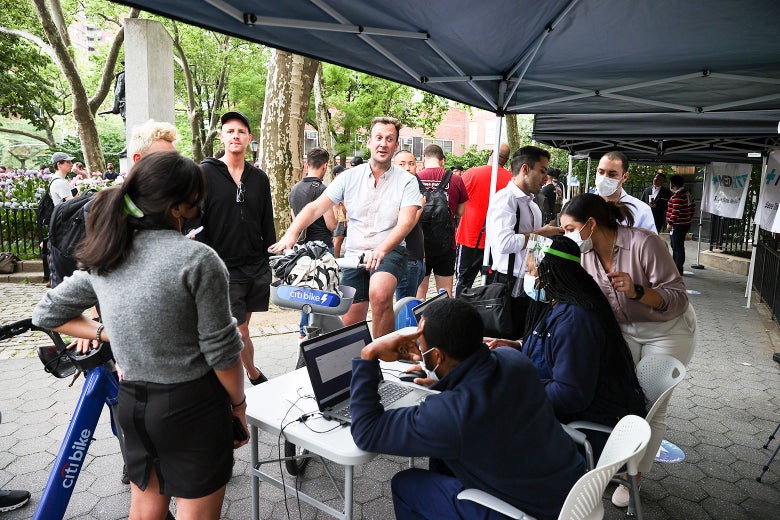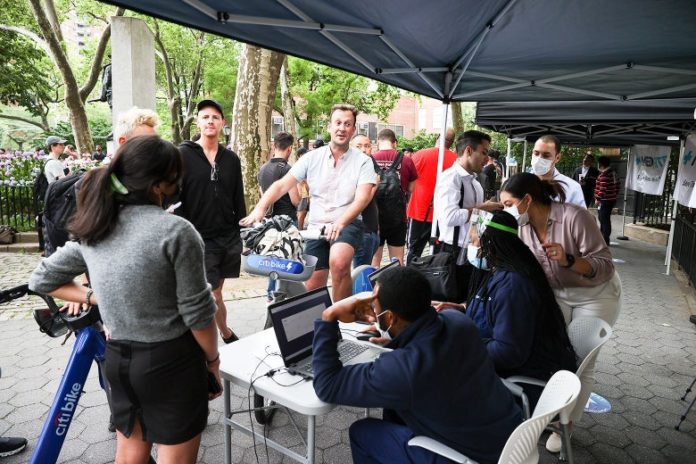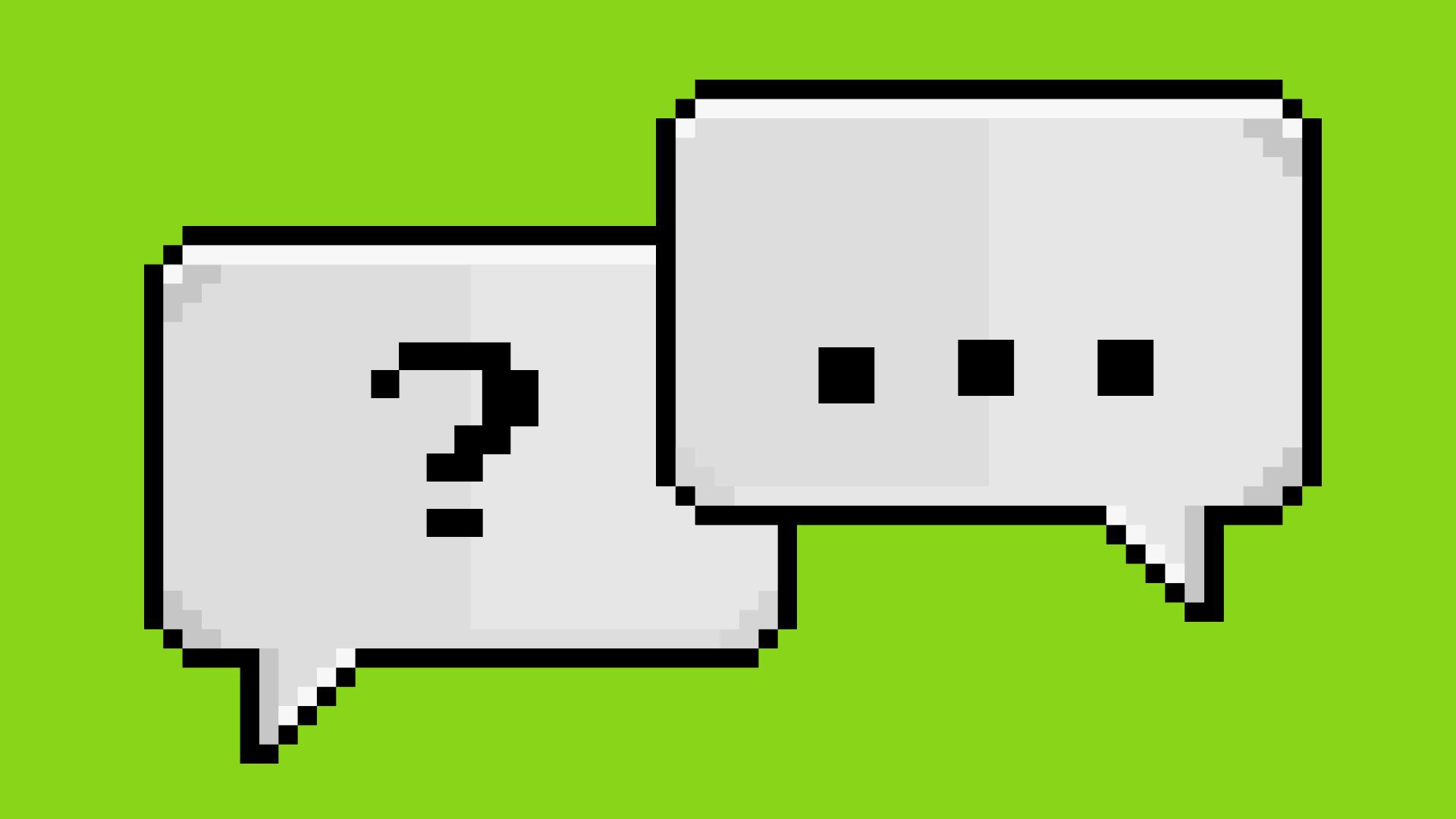
The world has another rapidly spreading virus on its hands. The first case of monkeypox in a global outbreak was confirmed in the United Kingdom in early May. The individual, who had come back from Nigeria, where monkeypox is endemic, had developed a rash a few days prior.
Since then, there have been over 5,700 confirmed cases worldwide, and 395 in the U.S. (as of Friday afternoon). This outbreak marks the first time monkeypox has circulated widely outside of areas where it’s endemic, such as Central and West Africa. The World Health Organization has classified the outbreak as a public health threat, and the Centers for Disease Control and Prevention has activated its Emergency Operations Center to try to slow its spread.
Advertisement
Now, the U.S. Department of Health and Human Services has plans to increase distribution of vaccine doses to help curb the virus, which is related to smallpox. You might be wondering if you’ll need this latest jab, and what you can expect next from the virus. Here, we break it down.
Advertisement
Advertisement
Advertisement
Monkeypox seems so unexpected! The U.S. just had this vaccine on hand?
The U.S. has reserved enough smallpox vaccine doses in the Strategic National Stockpile to vaccinate the entire U.S. population. This is partially in response to elevated fears of bioterrorism after the events of 9/11 and the 2001 anthrax attacks.
Of the vaccines in that stockpile, one called Jynneos is licensed for protection against exposure to monkeypox specifically, according to a Johns Hopkins fact sheet. This vaccine doesn’t make up much of the stockpile, so the government is ordering more. Jynneos was approved by the EU in 2013, and licensed in the U.S. in 2019.
Advertisement
Advertisement
Some of the stockpile is an older smallpox vaccine, ACAM2000, which can be given after exposure to monkeypox. It has more side effects than Jynneos and is not recommended for immunocompromised individuals. And some of the stockpile is a third vaccine, the Aventis Pasteur Smallpox Vaccine, but it’s unclear if it protects against monkeypox specifically.
How effective is the Jynneos vaccine?
Jynneos is at least 85 percent effective in preventing monkeypox infection, based on data from animal studies, as well as the immune response to the vaccine in humans (there’s no data on how effective it is against the current outbreak, though). The FDA approval of Jynneos included 22 clinical trials on almost 8,000 people.
Advertisement
Who can get the monkeypox vaccine?
Advertisement
Right now, it’s pretty limited. (Though, remember, there are only a few hundred cases in the U.S., and monkeypox does not spread like COVID does.) The CDC recommends the vaccine to individuals with confirmed or presumed exposures, as the shot reduces the risk of contraction and can potentially reduce symptoms. Jynneos is currently approved for protection against smallpox and monkeypox in individuals 18 years and older who are at high risk for those infections. Vaccines are going to states with outbreaks; you can see which states have cases at all here.
Advertisement
Advertisement
Some cities that are distributing the vaccine have strict eligibility requirements. For example, in D.C., those eligible for vaccines are: transgender women or nonbinary persons assigned male at birth who have sex with men, sex workers (of any sexual orientation/gender), and staff (of any sexual orientation/gender) at establishments where sexual activity occurs (e.g., bathhouses, saunas, sex clubs). New York’s vaccines were at first available just to gay, bisexual, and other men (ages 18 and older) who have sex with men and have had multiple or anonymous sex partners in the last 14 days. The state has since changed eligibility to be more inclusive.
Advertisement
Advertisement
Advertisement
Advertisement
So far, it doesn’t seem like there is any sort of specific priority for the immunocompromised, as there was for the COVID-19 vaccine.
How long does it take to be effective?
Jynneos is a two-dose vaccine, spaced 28 days apart. As with the Pfizer and Moderna COVID vaccines, full immunity in your body isn’t reached until two weeks after the second dose.
However, even one shot can prevent monkeypox entirely if taken within four days of exposure. If you suspect you have already come into contact with the virus, it’s important to get the vaccine as soon as possible. Even if you can’t get the vaccine within four days, it can still lessen the symptoms mentioned above if the first dose is taken within two weeks of exposure.
Advertisement
Is there a monkeypox vaccine for kids?
The CDC is currently considering a protocol for the Jynneos vaccine in kids, according to a report from Bloomberg.
Remind me how monkeypox spreads?
A common misconception is that monkeypox is a sexually transmitted infection. Cases can be spread through sexual encounters, but that’s mostly because that’s a form of skin-to-skin contact. According to the CDC website, monkeypox spreads through direct contact with the rash of someone who is infected, as well as respiratory secretions during prolonged face to face contact (or intimate physical contact). It can also spread through people touching items that previously touched infectious rash or body fluids. According to a fact sheet from the Pennsylvania Department of Health, prolonged face to face contact means more than three hours, and monkeypox “is not easily transmitted person to person.”
Advertisement
Advertisement
Advertisement
If I already received the smallpox vaccine as a kid, am I protected?
The short answer is no. The CDC recommends that anyone exposed to monkeypox should get vaccinated if they haven’t received the smallpox vaccine within the last three years. Since routine smallpox vaccination stopped in 1972 in the U.S., chances are not very many people are still protected. Plus, vaccines wane over time. Furthermore, older versions of the smallpox vaccine may not have been as effective against monkeypox as the newer Jynneos vaccine, which was designed with both smallpox and monkeypox in mind.
Where can I get tested if I think I have monkeypox?
There are no at-home tests available for monkeypox. If you think you’ve been exposed to monkeypox, the best next step is to go to your nearest sexual health clinic. Monkeypox blisters can be swabbed and sent to be tested. Plus, the medical professionals at the clinic can help you access the vaccine.
Advertisement
As the Washington Post reported last week, there is a lack of access, for both patients and doctors, to monkeypox tests. And skin lesions can easily be misdiagnosed with a different infection. This failure to test early on has led to a failure to contain the outbreak; the longer it takes an infected person to get diagnosed, the longer they can spread the virus.
Advertisement
Advertisement
What are the symptoms of monkeypox?
They include “intense flu-like symptoms: a fever, full-body chills, night sweats, a cough, a sore throat, and swollen lymph nodes,” according to a recent BuzzFeed article by freelance video producer Matt Ford, who came down with the virus himself. He also describes lesions “in the underwear zone” that “filled with pus and became itchy.”
Advertisement
It’s worth noting that the severity of the symptoms can vary. A study published in the Lancet Infectious Diseases Journal reports that the symptoms found in patients of this outbreak have some important differences from previous outbreaks around the world. More lesions are showing up in the genital area (remember, it spreads from skin-to-skin contact), appearing similar to common STIs, which could make diagnosis difficult.
Advertisement
Advertisement
On a happier note, though, fewer patients reported feeling tired or having a fever, which suggests this outbreak could be milder than previous outbreaks.
Has anyone died of monkeypox?
So far during the worldwide outbreak, there have been few hospitalizations, but only one reported death. (This count does not include areas where the virus is endemic, and was circulating previously.) And luckily, the strain currently circulating is far less deadly than other strains. The CDC states that over 99 percent of people who get this strain are likely to survive (though they caution that immunocompromised individuals and children under 8 are at higher risk).
According to WHO, the fatality rate has historically ranged from 0 to 11 percent (and higher among children), but in recent times, it’s somewhere between 3–6 percent.
Should I be worried about monkeypox, generally?
Slightly. As infectious disease expert Céline Gounder writes, “Monkeypox could become endemic in the U.S. and around the world if it continues to spread unchecked.” Many agree that the Biden administration’s response is too slow. You’d think that after two and a half years of dealing with a virus, we’d know how to mitigate this better.








